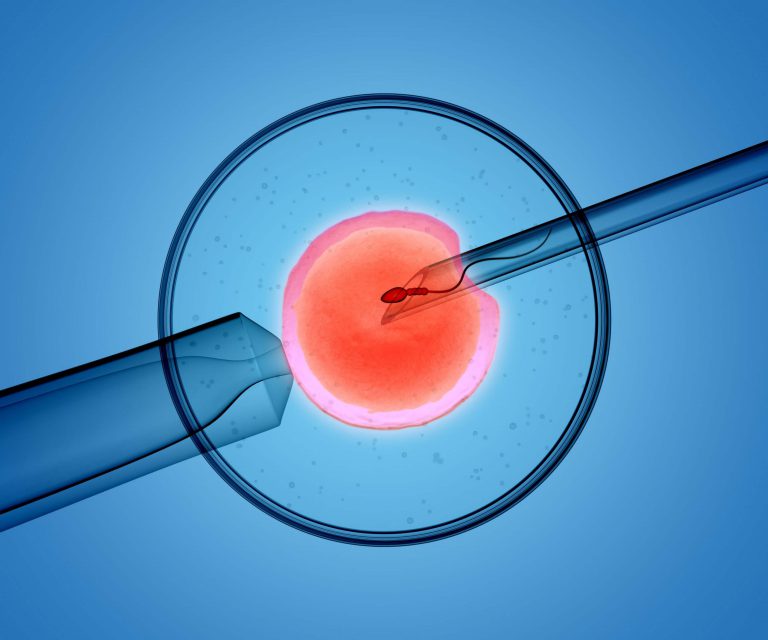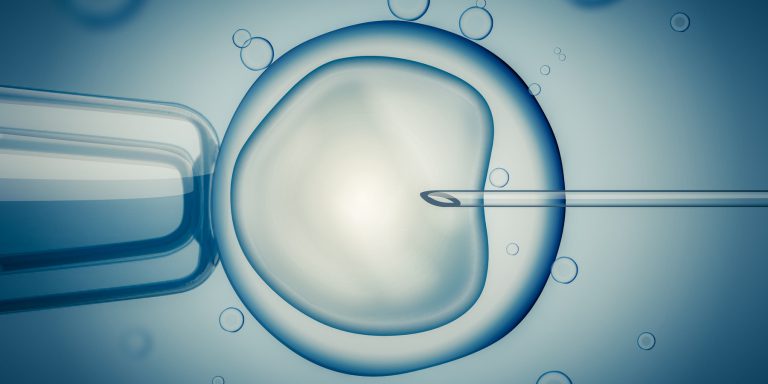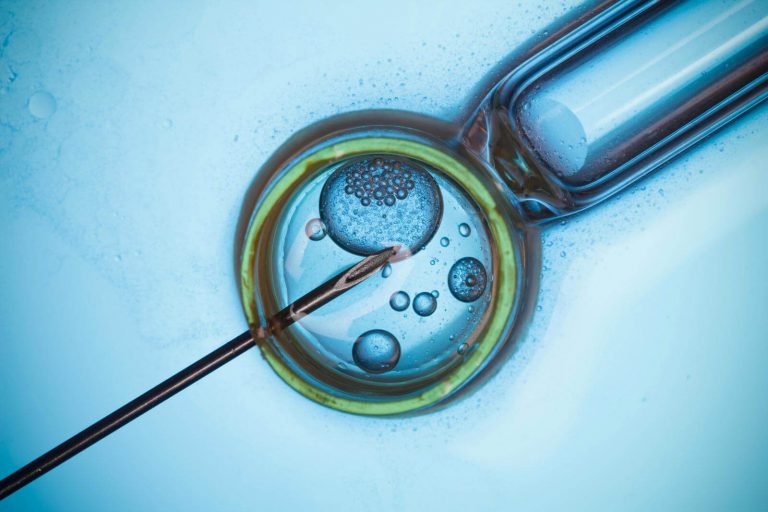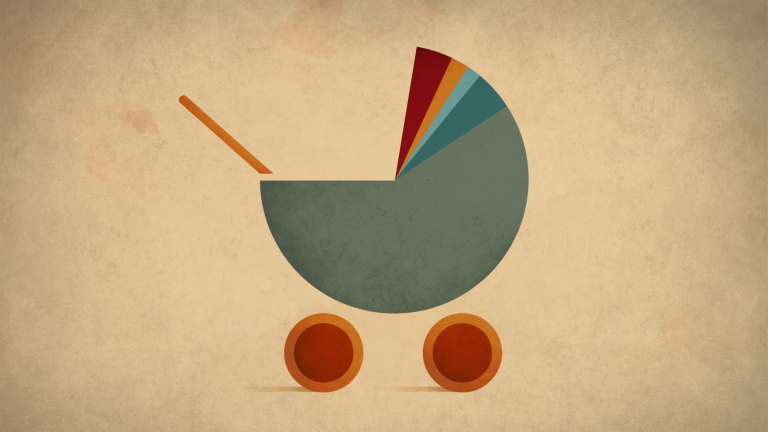Natural approaches to health and wellness are a popular choice for many people today, and it’s no different in the case of fertility care. In this case, when we say “natural treatment” we just mean anything you can do to improve your fertility without taking prescription drugs or undergoing a medical procedure.
Especially for people who are dealing with mild infertility problems, for people who have exhausted other options, or for people who just don’t want to put their bodies through rigorous medical treatment, natural fertility treatments can offer a welcome alternative. This is by no means an exhaustive list, but take a look at some of things you should be aware of, avoid, or try to maximize your chances for a healthy pregnancy.
Understanding Your Natural Fertility
Age and Fertility Health
To begin with, it’s important to know that part of a natural, holistic approach to fertility is understanding that a woman’s body has a built-in “biological clock” – that is, a natural increase and decrease in fertility related to age. As women age, their fertility follows a biological pattern which moves from the beginning of fertility at puberty, to the most fertile years in the early 20s, to a gradual decline in fertility in the 30s, to a sharp decline in the 40s, to the end of fertility at menopause, which happens (on average) around age 51. This pattern in fertility is due to the fact that women are born with all the eggs they’ll ever have, and both the quality and quantity of those eggs decrease over time.
Men, on the other hand, do not have a biological limit to the age at which they can conceive a child, since they produce new sperm throughout their lives. However, sperm quality tends to decrease with age and can begin to have genetic abnormalities (leading to potential diseases in the child they father, like Down Syndrome and schizophrenia) around the same time as a woman’s fertility naturally begins declining. In addition, men may experience problems with sexual functioning as they age.
Once you understand nature’s basic fertility plan, you may begin to wonder what you can do to naturally boost your fertility or address your infertility problems. As it turns out, a variety of natural options are beginning to show promise in scientific studies, although in many cases, more research is needed.
Factors that Negatively Impact Fertility
Smoking
Cigarette smoking is a major risk factor that can impact your fertility and the health of your offspring, with infertility rates about twice as high for smokers compared to nonsmokers. Moreover, second hand smoke exposure resulted in adverse effects that were only slightly smaller than for smokers. When you smoke, over 7,000 chemicals enter the body and react in negative ways. Cigarette smoke can: damage egg and sperm DNA, hinder ovulation, decrease semen parameters, increase miscarriage, and increase ectopic pregnancy rates. Even if you are an occasional smoker, stopping smoking is highly recommended to improve your chances for conception.
Environmental Toxicants
Environmental toxicants such as pollution, pesticides, and Bisphenol A (BPA) have been shown to have damaging effects on reproductive health. In a study conducted in mice exposed to air pollution it was found that the mice developed sperm mutations, DNA strand breaks, and sperm DNA hypermethylation compared to mice breathing filtered air. Similarly, one study found that men working at motorway tollgates had a significant decrease in sperm motility and forward progression. Another toxic substance associated with impaired reproductive health is pesticides. In a recent study looking at the consumption of fruits and vegetables with pesticides, scientists found a direct inverse correlation to high levels of pesticide residues and lower total sperm count and morphology. Similarly, the chemical Bisphenol A (BPA), which acts as an endocrine disruptor, has been found to have a correlation with decreased semen quality and increased DNA damage.
Natural Fertility Treatments
So if aging is out of your control, you don’t smoke, and you’ve avoided environmental toxicants, what can you do to actually improve your fertility? Read on to find out what can positively impact male and female fertility.
Fertility Diet
Diet can greatly affect fertility but is one of those cliche categories that we often overlook. However, data from more than 18,000 women from the Nurses’ Health Study, provides insight on how diet can influence fertility. One strategy to optimize your diet for increased fertility is to eat “slow” digesting carbohydrates that have a low glycemic index. Studies have shown that women with a high-carb or low-carb diet were equally likely to have fertility problems, but the women in the highest glycemic-load diet category were 92% more likely to have had ovulatory infertility. High glycemic foods like breakfast cereals, white rice and potatoes were linked to higher ovulatory infertility risk. Where as low gylcemic index foods like brown rice, pasta and dark breads, were linked with greater success getting pregnant. Equally important is to remember that fats, specifically unsaturated fats, are important for fertility. The same study found that adding more carbohydrates in lieu of unsaturated fats predicted a decrease in fertility. However, not all fats are created equal. Avoid trans fats– even consuming as little as 4 grams of trans fats per day has been associated with a greater likelihood of developing ovulatory infertility. Sticking to unsaturated fats will help regulate genes in your body and can improve fertility by increasing insulin sensitivity and decreasing inflammation. Finally, when scientists analyzed protein intake, it was found that the source of protein had an association for infertility in women. Swapping 25 grams of animal protein with 25 grams of plant protein was related to a 50% lower risk of ovulatory infertility.
Exercise and Fertility
Exercise is important for fertility, however, there is no general recommendation for the duration and intensity of a workout regimen for those trying to conceive. Previous work by Dr. Rose Frisch has found that too much exercise and too little stored energy can hinder or turn off ovulation in elite athletes. Similarly, a study by Vaamonde et al., found that triathletes had poorer sperm morphology (4.7%) compared to a physically active group who worked out three times a week for at least one hour (15.2%). But let’s face it, our ancestors burned twice as many calories compared to American’s today, so how can we approach this topic and make sense of the data? One important effect of exercise on our body is the ability to increase insulin sensitivity by increasing GLUT4 glucose receptors on our cells. This in turn can help regulate blood sugar levels and allow the body to regulate the intricate metabolic processes in our body. Most physicians recommend exercising for at least 30 minutes on most days of the week. Ultimately, as long as you are increasing your heart rate, sweating and having fun, your doing it right!
Acupuncture for Fertility
Acupuncture, an ancient Chinese treatment involving sticking very thin needles in key spots around the body, is already respected by much of the Western medical community for its promise in treating a variety of health conditions. Now, a limited amount of studies have shown that acupuncture may increase fertility in men with unexplained infertility, women with PCOS, and women undergoing IVF. It may also help in cases of repeated miscarriage or unexplained infertility by stimulating egg production and blood flow to the uterus. In some cases, your insurance may even cover this treatment, as acupuncture is quickly becoming more and more recommended by doctors. It is not a good choice, however, for people experiencing infertility due to physical blockages like fibroid tumors or blocked fallopian tubes. If you are interested in finding an acupuncture clinic near you, The American Board of Oriental Reproductive Medicine (ABORM) has a directory of certified practitioners around the country.
Natural Fertility Supplements
In addition to acupuncture, there are a variety of natural supplements you might want to look into. These are typically a variety of vitamins, anti-oxidant containing plants, and herbs. (Info on many suggested vitamins and supplements for fertility can be found here.) Because some of these fertility supplements can be dangerous in high doses or during pregnancy, always discuss anything you’re planning on taking with your doctor.
CoQ10, sometimes called “ubiquinone”, is an important molecule required for energy production found in every cell of our body. CoQ10 also functions as an antioxidant, helping protect the body from DNA damaging free radicals. The natural aging process, as well as certain statin medications, can decline CoQ10 levels in the body, which may lead to a higher rate of abnormal embryos. Studies have shown that CoQ10 treated mice had a significant increase in the number of ovulated eggs, egg quality, and litter size. Similarly, recent studies in men have shown an improvement in sperm count, motility, and morphology from supplemental CoQ10.
Folic Acid (Vitamin B9) is an essential vitamin needed for copying and synthesizing DNA, producing new cells, and supports the nervous system and immune system. Moreover, it plays a fundamental part of the DNA methylation process through the act of donating methyl groups to new cells. Low blood folate can increase miscarriage, developmental delays, and cause birth defects. Taking folic acid supplements can reduce the chances of a newborn being born with spinal cord defects by 75%. However, due to genetic differences, some people do not have the appropriate enzyme (MTHFR), or produce less than normal amounts, to convert folic acid into the bioavailable form used by the body. If you have a known MTHFR mutation, the bioavailable form of folic acid, 5-methyltetrahydrofolate, is recommended as the appropriate choice to increase blood folate levels.
Vitamin B6 has a great reputation in the infertility community for helping with fertility issues. Studies show that B6 seems to act like progesterone in the body or increases the natural level of progesterone – a hormone needed to sustain a pregnancy, often implicated in miscarriage. Similarly, studies show that levels of B6 are lower in women who miscarry.
Inositol is another supplement that shows a great deal of promise for improving fertility. Inositol is a sugar alcohol similar to glucose which is found in many plants, like oranges and cantaloupes. Limited studies have shown that inositol may restore normal ovulation in women with PCOS, improve egg quality, reduce the likelihood of spina bifida (a birth defect), reduce the effect of high blood sugar on developing embryos, and help promote sleep and anxiety relief. Inositol comes in two forms for supplementation: myo-inositol, and d-chiro-inositol. D-chiro-inositol may be more effective at lower doses.
Discuss Treatment With Your Doctor
We’ll leave you with one final reminder: No matter what kind of fertility treatment plan you pursue, you should always discuss it with your doctor. Infertility is a complex and dynamic disease. Although there could be several factors contributing to the infertility, there are many approaches you can take to help promote good fertility. Ultimately, your doctor will help make sure that there are no unintended adverse effects from the various treatment approaches so that you have the best possible chance for conceiving children.








